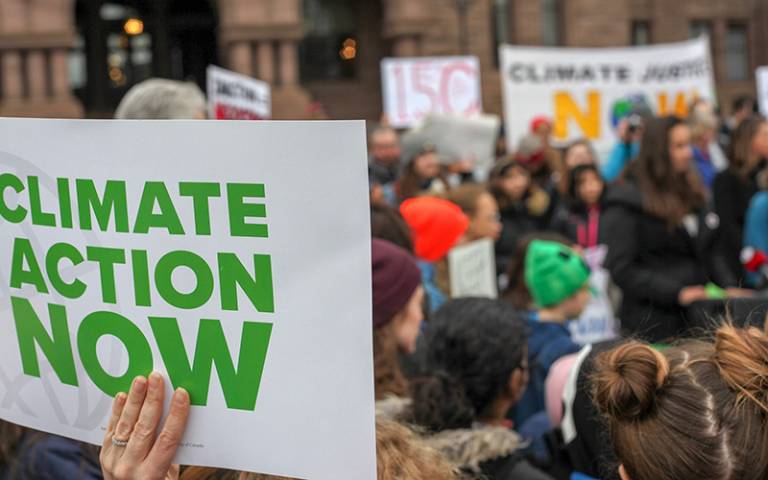Yacob Mulugetta authors key UN work on energy transition
28 November 2019
Professor Yacob Mulugetta, Professor of Energy and Development Policy in UCL STEaPP, led the development of a key chapter in the UN Environment Programme’s (UNEP) annual Emissions Gap Report, which compares where greenhouse gas emissions are heading against where they need to be.

Chapter 6, ‘Bridging the gap: global transformation of the energy system’, looks at the potential of the energy transition - particularly in the power, transport and buildings sectors, to reduce global greenhouse gas emissions. The report warns that a complete transformation in the way energy is produced and consumed is needed to reach the 1.5°C temperature goal of the Paris Agreement.
Our global energy system is highly carbon intensive with coal, oil and natural gas meeting 85 per cent of all energy needs. The chapter reviews five key transition options for decarbonisation based on their relevance to a wide range of countries, clear co-benefit opportunities and their potential to deliver significant emission reductions. These include: expanding renewable energy for electrification, coal phase-out, decarbonising transport, decarbonising energy-intensive industries, and avoiding future emissions and ensuring energy access.
Professor Yacob Mulugetta said: “The report is yet another warning that the energy arena represents the key battleground where the struggle against climate change is won or lost. The report makes the case that energy transformations at multiple levels will be needed for which global cooperation and bottom-up action of a significant magnitude is required.”
Using case study examples, ranging from a total phase-out of coal in Germany and elsewhere and the lack of access to clean energy for cooking in regions such as sub-Saharan Africa, the chapter highlights some of the key policy challenges related to energy transition and the need for strategies to be developed and adapted to fit specific contexts and needs of countries.
2020 is a critical year for climate action, with the UN climate change conference in Glasgow aiming to determine the future course of action to avert crisis and countries expected to significantly step up their climate commitments. The Intergovernmental Panel on Climate Change (IPCC) has warned that going beyond 1.5°C will increase the frequency and intensity of climate impacts.
António Guterres, UN Secretary-General, said: "For ten years, the Emissions Gap Report has been sounding the alarm – and for ten years, the world has only increased its emissions. There has never been a more important time to listen to the science. Failure to heed these warnings and take drastic action to reverse emissions means we will continue to witness deadly and catastrophic heatwaves, storms and pollution.”
The authors of the chapter also include Pablo E. Carvajal (International Renewable Energy Agency, Germany and graduate from UCL), James Haselip (UNEP DTU Partnership), Thomas Spencer (The Energy and Resources Institute, India), Edo Abraham (Delft University of Technology), Simon Batchelor (Gamos Ltd, UK) and Brigitte Knopf (Mercator Research Institute on Global Commons and Climate Change, Germany).
The full Emissions Gap Report is available to read here.
Image by Jasmin Sessler from Pixabay
 Close
Close

